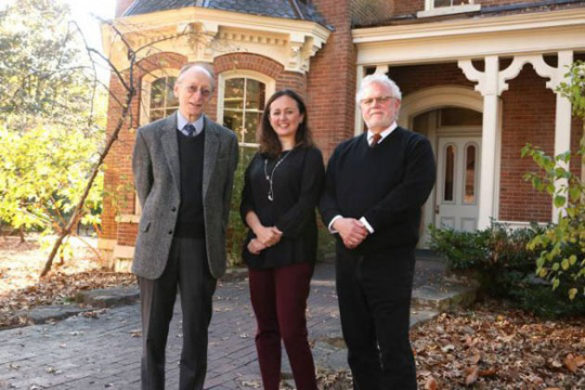
Specialists on Islam will come together Sept. 7-9 at Vanderbilt University to discuss the historical and contemporary facets of being Muslim in a wide variety of locales and language communities around the world.
The conference “Speech and Space: Discursive Environments across Non-Arab Islam,” which will be held at Sarratt Student Center, has been organized by Samira Sheikh, associate professor of history; David J. Wasserstein, professor of history and Eugene Greener Jr. Professor of Jewish Studies; and Tony K. Stewart, Gertrude Conaway Vanderbilt Professor in the Humanities and chair of Religious Studies.
“As Islam grew beyond the Arab world, its practitioners found themselves inhabiting and domesticating new physical environments and living in ever-more diverse language communities,” Stewart said. “These linked activities—the appropriation and domestication of local speech and space—gave rise to new and diverse expressions of Islam. Yet whatever the local variation, these activities conveyed a recognizable sense of what it meant to be a Muslim.”
Speakers include Shahzad Bashir, Aga Khan Professor of Islamic Humanities, Brown University; Mohamad Tavakoli-Targhi, professor of history and Near and Middle Eastern civilizations, University of Toronto; Faisal Devji, professor of history, University of Oxford; Benjamin Soares, University of Florida; and Emily Greble, associate professor of history and European studies, Germanic and Slavic languages, Vanderbilt University.
This week’s conference is the last event of the Andrew W. Mellon John E. Sawyer Seminar, “Where the Fringe Dwarfs the Center: Vernacular Islam Beyond the Arab World,” which was co-directed by Sheikh, Stewart and Wasserstein. The Sawyer Seminar on Islam, which received strong support from the Robert Penn Warren Center for the Humanities, grew out of an earlier collaboration of College of Arts and Science faculty.
For more information, email Terry Tripp or call 615-343-6240.